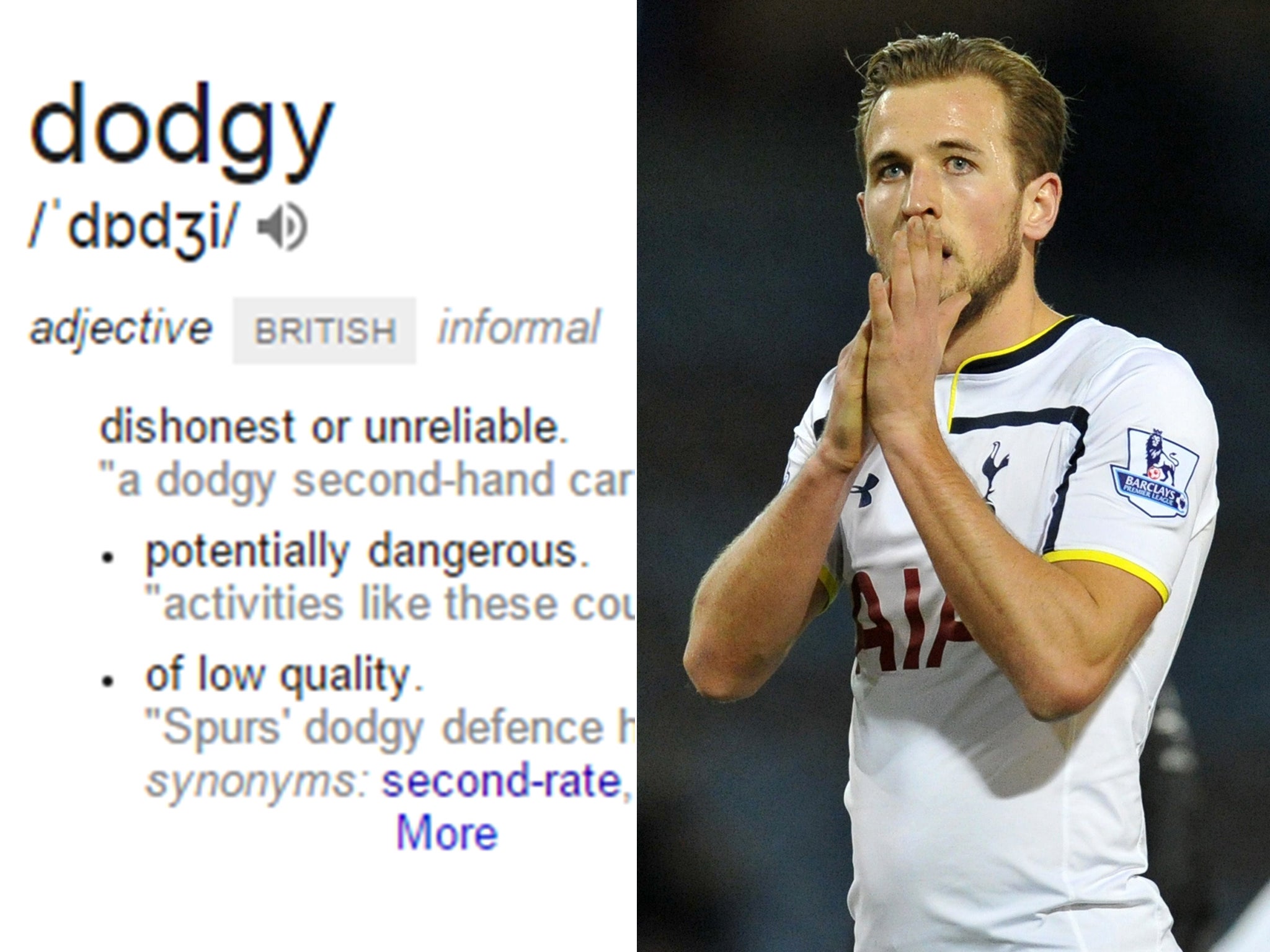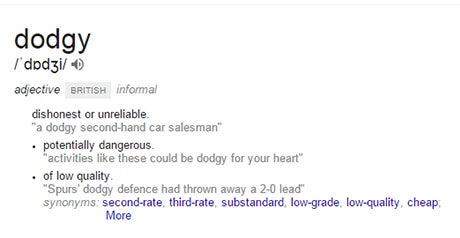Dodgy: Tottenham trolled by Google again - search engine uses Spurs to define another word following 'lackadaisical'
Try searching the words and see what happens

Suspicions that Google is an Arsenal fan will only increase after Tottenham were used to help define yet another derogatory term on the world's biggest search engine.
Last month it was spotted that if the word 'lackadaisical' was typed into Google it provided a definition (lacking enthusiasm and determination; carelessly lazy) and then used it in a sentence with a little help from Mauricio Pochettino's side.
It stated: "a lackadaisical defence left Spurs adrift in the second half".
Now Tottenham have been used to help define the word 'dodgy'.
Google defines the word as 'dishonest or unreliable; potentially dangerous; of low quality' and then uses it in a sentence.
It reads: "Spurs' dodgy defence has thrown away a 2-0 lead".
Synonyms for 'dodgy' include second-rate, third-rate, substandard and low-quality.

But before Tottenham fans start getting all Jose Mourinho and claim there is a campaign against them, it should be noted that the entry isn't the fault of Google. The search engine gets their definitions direct from Oxford Dictionaries, published by Oxford University Press.
The first edition was published in 1888, a second edition in 1989 and OED Online was launched in 2000.
Join our commenting forum
Join thought-provoking conversations, follow other Independent readers and see their replies
Comments
Bookmark popover
Removed from bookmarks